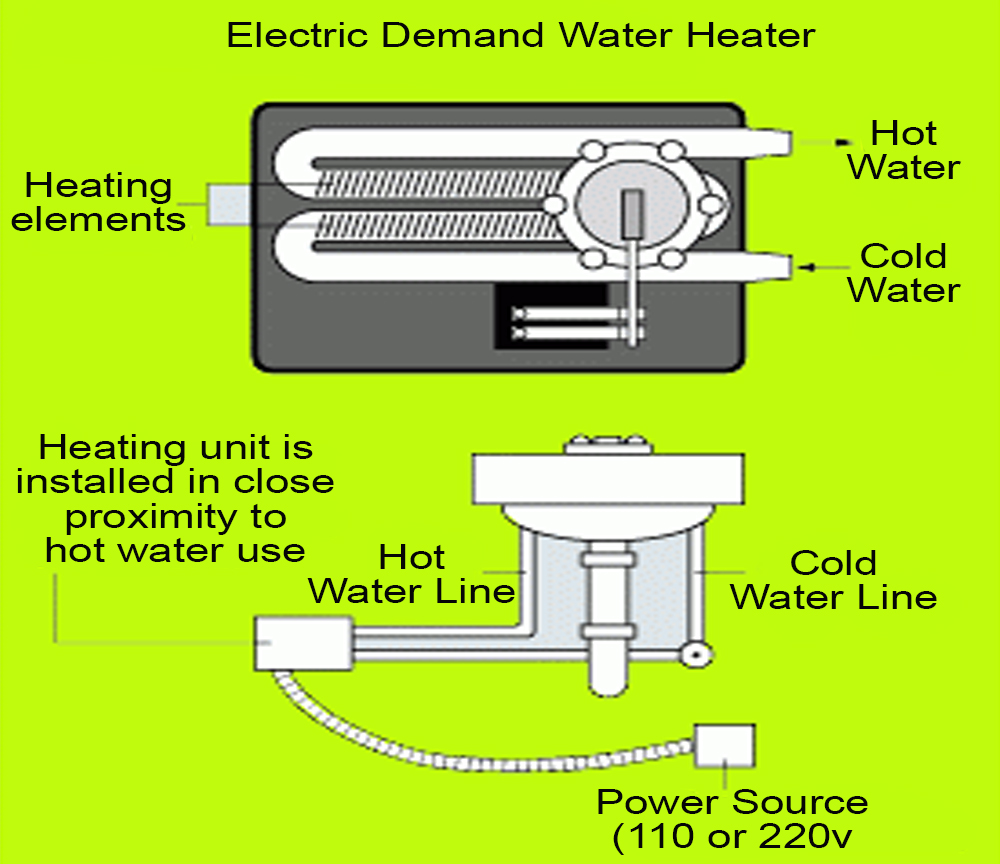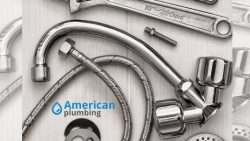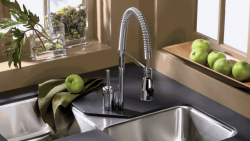
Tankless Water Heater
Tankless water heaters are sometimes referred to as demand type or instantaneous water heaters, their main job is to deliver hot water only when it is requested. There is not a large watershed for storage. Tankless water heaters do not cause the substantial energy losses associated with traditional water heaters. This is where tankless water heaters can save you a great deal of money all while reducing your carbon footprint. In this article we will cover the basics about how tankless water heaters operate. American Plumbing will help you determine if a tankless water heater would be suitable for your home. Certain thresholds must be met to determine if the actual cost will be offset by the energy savings. If you throw the money savings equation out the door then a tankless water heater is just awesome from a green standpoint.
Tankless water heaters are able to heat the water with out the use of a stand alone storage tank. If a hot water faucet is turned on the cold water makes its journey thru the pipes and then into the tankless water heater unit. There are two main ways to heat the water – with a gas burner or an electric element. The main effect of a tankless water heater is to constantly deliver supply of hot water. Although a tankless water heater doesn’t deliver the same amount of hot water in volume, thus causing your flow rate to be a little less. On the other hand you don’t have to wait for the tank to fill up when it runs out. A tankless water heater will produce the same amount continually.
Generally tankless water heaters deliver hot w ater at a flow rate of two to five gallons (seven to 15 liters) a minute. Gas powered tankless water heaters generate significantly larger hot water flow rates than the electric tankless versions. There are cases where the biggest gas powered tankless water heat will not be able to meet the demand of larger homes. Concurrent and synchronous use of traditional hot water resource hogs (shower, dishwasher and washing machine) with several different users will definitely put a strain on a tankless water heater.
ater at a flow rate of two to five gallons (seven to 15 liters) a minute. Gas powered tankless water heaters generate significantly larger hot water flow rates than the electric tankless versions. There are cases where the biggest gas powered tankless water heat will not be able to meet the demand of larger homes. Concurrent and synchronous use of traditional hot water resource hogs (shower, dishwasher and washing machine) with several different users will definitely put a strain on a tankless water heater.
This doesn’t mean that having a tankless hot water heater is not an option. Just as a larger home will have two separate air conditioners, the same principle applies here. Installing additional tankless water heaters is a common procedure in bigger homes. You can either run the tankless water heaters in tandem or in standalone mode. Stand alone just means that one of the tankless water heaters is specifically married to a set of certain devices. A typical scenario would be to have one dedicated to your dishwasher and clothing machine washer. This easily leaves the other tankless water heater the ability to cover the rest of the house including showers and bathrooms.
The beginning cost of a tankless water heater is a tad more than the traditional tall watershed storage vessel. With that being said a tankless water heater has a much longer shelf life and significantly less operational and energy draw. This is where the real money saving comes into play. This extra cost of a tankless water heater is easily absorbed in your first few power bills. A tankless water heaters life expectancy easily exceeds twenty years. Tankless water heaters have spare parts that will undoubtedly increase their typical lifespan. Whereas traditional storage water heaters can crap out after ten to fifteen years.
Tankless water heaters might one day become mandatory. Just as incandescent light bulbs were outlawed a few years ago. Go into any box store and try and find an old edison E27 base light bulb (the kind we grew up with – that depends some of you might have been using kerosene). The stores don’t have them anymore because of laws mandated from Washington. Being green and reducing your carbon footprint is the responsible thing to do for the environment, not to mention the cost saving. The main green factor for tankless water heaters is that they avoid the standby reserve heat losses that a traditional storage water heater will produce.




